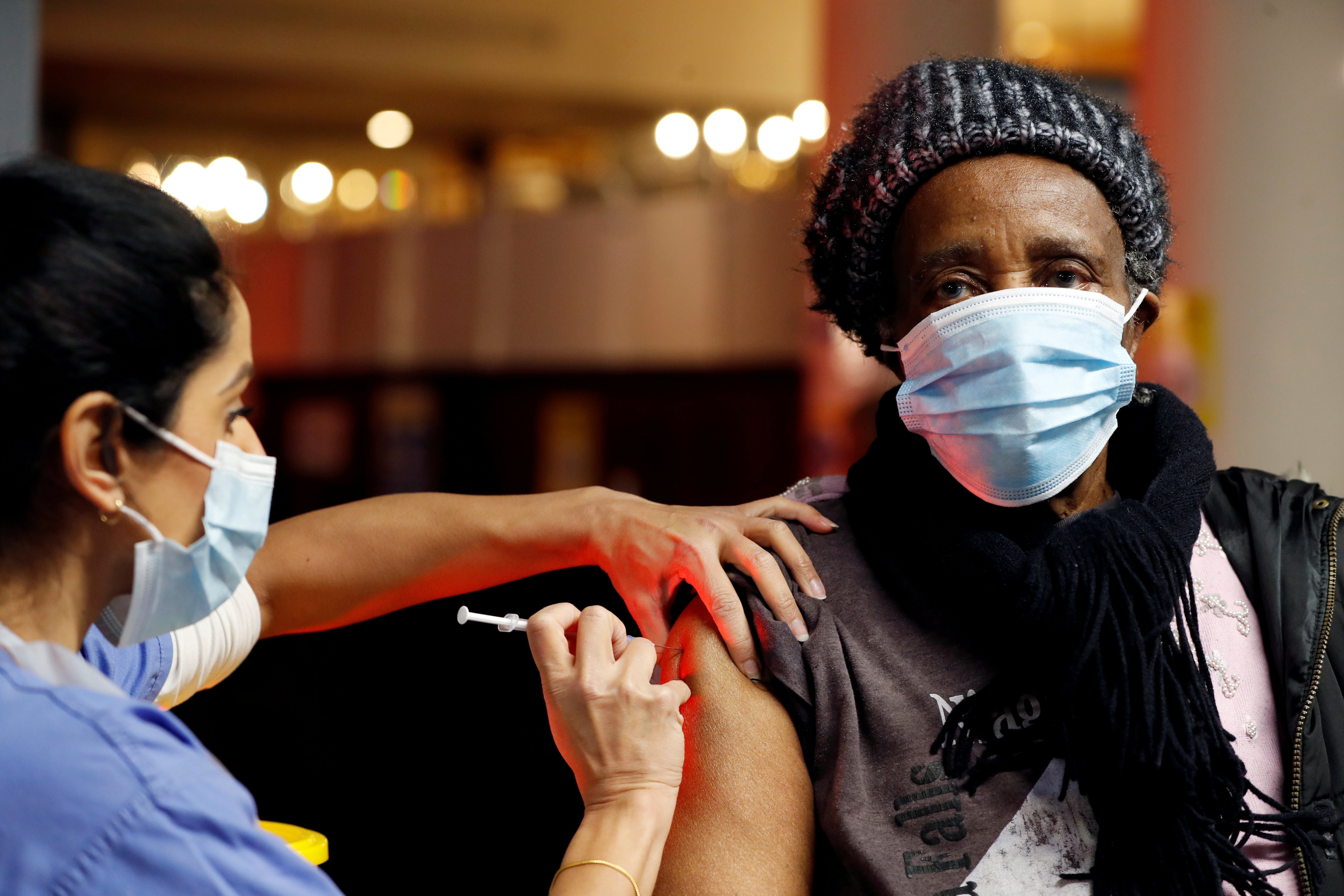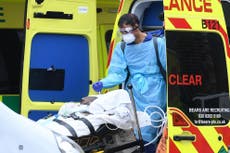NHS ‘failing’ some minorities finds major study into inequalities
Health-related quality of life is lower for most ethnic minorities, as Joe Middleton explains


The NHS is "failing" people from ethnic minority backgrounds, an extensive study has revealed.
The landmark report showed that some ethnic minority groups are far more likely to report getting inadequate support from local services to manage their health conditions.
Researchers also found stark health inequalities within the health system. The average health of 60-year-olds from Gypsy or Irish Traveller, Bangladeshi, Pakistani and Arab groups was similar to that of a white 80-year-old, the report claimed.
The British Medical Association (BMA) said the “damning findings” highlight the "enormous and unjust health inequalities faced by minority ethnic groups”.
And The Traveller Movement, a human rights charity for Gypsy Roma and Traveller people, described the evidence as “truly shocking”.
Lead author of the study Dr Ruth Watkinson from the University of Manchester said: "This suggests the NHS as an institution is failing people from some ethnic groups.
"Policy action is needed to transform healthcare and wider support services to make sure they meet the needs of all individuals in England's multi-ethnic population fairly.
"But policymakers also need to address the structural racism that makes it harder for people belonging to ethnic minority groups to access socio-economic opportunities because poverty is a major cause of poor health."
Approximately 12 per cent of the British adult population is from an ethnic minority background, however these communities have experienced higher rates of infection and mortality during the Covid-19 pandemic.
The Traveller Movement told The Independent that health inequalities experienced by Roma Gypsy and Irish Travellers have become “entrenched” by the pandemic.
A spokesperson said: "We’ve known for years from small-scale studies that Gypsy, Roma and Traveller people live on average 10-12 years less than the general population, suffer from a variety of chronic health conditions, and they experience very high levels of stress, anxiety and depression.
"Further, almost a third have experienced discrimination in the healthcare system, with many being turned away from GP surgeries for not having proof of address.
“Additionally, there are high levels of infant and maternal mortality rates and lower levels of immunisation than the general population. Needless to say, these inequalities have become further entrenched by the coronavirus pandemic.”
The study found health-related quality of life was lower for most, but not all, ethnic minority groups, with inequalities generally wider for women.
For example elderly Bangladeshi women are around three times more likely to report poor experiences than older white British women, the study showed.
BMA council chair Dr Nagpaul said: “The damning findings in this report highlight the enormous and unjust health inequalities faced by minority ethnic groups in this country which have prevailed for far too long.
“That those from Bangladeshi, Pakistani, Arab, and Gypsy or Irish Traveller backgrounds were considered to have a 20 year age difference in their health status compared to those from equivalent white backgrounds is truly shocking."
The research published in Lancet Public Health, used the England-wide GP Patient Survey to analyse responses from almost 1.4 million adults aged over 55, surveyed between 2015 and 2017.
The sample included 152,710 people who self-identified as belonging to an ethnic minority group - the largest-ever sample.
Dr Halima Begum, chief executive of the Runnymede Trust, told The Independent: “The NHS is the bedrock of British society – the great leveller in our greatest time of need. Unfortunately, black and minority ethnic communities have long been aware of disparities around access and equality in terms of treatment and health outcomes.”
Dr Begum added: "I have lost count of the number of times elderly neighbours have spoken to me about their fear of accessing the health service. These conversations often end with words along the lines of, ‘They wouldn’t listen to me’, and nothing was done about it.'
"That fear is often based on past experience, whether incidents of simple misunderstanding, cultural confusion or, in the case of some patients, an outright fear of perceived hostility."
An NHS spokesperson said: "While of course the determinants of health and wellbeing stretch far beyond healthcare itself - and includes jobs, housing, income, diet, exercise and wider social inequalities - the health service also has a key role to play in supporting diverse communities to stay healthy and access high quality care."
A Department of Health and Social Care spokesperson said: "This government is committed to ensuring everyone has access to high quality healthcare, regardless of where they live or who they are.
"That's why we are levelling up across this country - so that everyone can have the opportunity to enjoy a long and healthy life.
"Our NHS Long Term Plan, which is backed by an extra £33.9bn for the NHS by 2023-24, puts tackling health inequalities at its heart and we have established a new NHS Race and Health Observatory to tackle the specific health challenges facing people from ethnic minority backgrounds."




Join our commenting forum
Join thought-provoking conversations, follow other Independent readers and see their replies
Comments